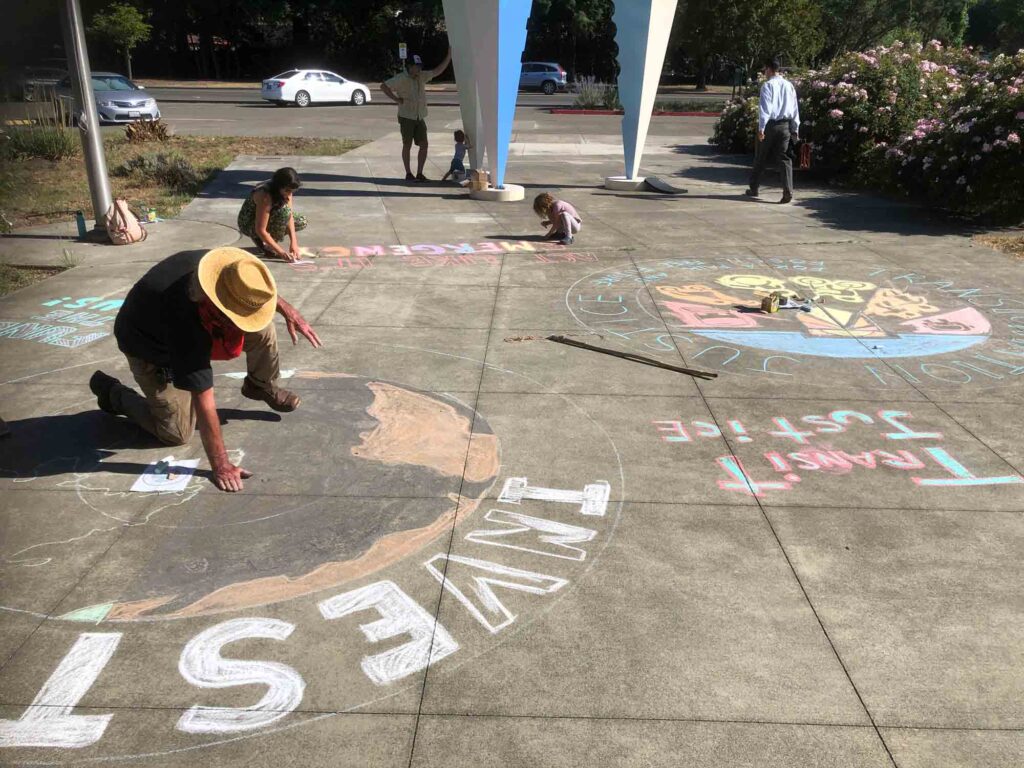Climate Mobilization Project’s New Strategic Direction
Climate Mobilization Project’s New Strategic Direction — Building the critical consciousness needed for a mass movement rooted in climate survival and direct action
The year of 2022 has been especially politically radicalizing for me and our team at Climate Mobilization Project (CMP). We have been reflecting on the way our movement has been pouring in years of energy into incremental policy outcomes oftentimes detached from communities’ material needs — as we fall deeper into the non-profitization and state co-optation of our entire movement, and as the climate collapse continues to kill and displace frontline communities especially in the Global South. My home country of Pakistan — while ⅓ underwater because of recent climate catastrophe — is more than $99 billion in debt even though colonization and consequent neoliberal institutions have directly shaped Pakistan’s inadequate water governance in the face of climate vulnerabilities.

Decades of colonialism and imperialism have violently underdeveloped the Global South — the economic cost of loss and damage in underdeveloped countries has been estimated at $290 billion to $580 billion by 2030, rising to $1 trillion to $1.8 trillion by 2050. Global North appropriated around $62 trillion from the Global South between 1960 and 2018 And yet, more than 70 percent of climate adaptation finance given by the Global North is disbursed as loans, not grants.
So – what do rising global disasters and Global North neocolonialism mean for the US climate movement? This was one of the key questions our team at theCMP started asking to jumpstart our strategic planning process this year as we examined the movement around us and questioned the US-centric theory of change on which our organizing has been based.
But as the climate movement has continued to evolve so has CMP. While our local climate organizing campaigns have been extremely successful in building community power and shaping local climate policy, ultimately this year we had to take a step back from our work and reflect on the way strictly policy-oriented community organizing can be highly incremental and simply not enough when it comes to building the community and resilience needed to face accelerating climate catastrophe.
Some reasons Climate Mobilization felt the need to pause, reflect, and rebuild our theory of change include:
- Congressional failure to take meaningful action on climate;
- The slow pace of local climate programs where policy change is severely limited by what’s considered possible;
- Rising inequality amid continued neoliberal austerity;
- Escalating climate disasters that are hitting global and US-based frontline communities the hardest;
- And widespread cultural and generational concern about climate change that has not yet been tapped into by a mass movement.
We realized our movement desperately needs an approach that bridges community organizing and mass movement approaches – and pulls together learnings from both.
Climate Mobilization’s Key Strategic Planning Takeaways
Our team at CMP reached out to more than 20 leaders across the Just Transition movement to guide our strategic planning process – we asked them about what learnings, gaps, and critical takeaways they saw emerging in their leadership within climate justice movements. Our interview findings were incredibly impactful and allowed us to gain the strategic insights we needed to revamp our theory of change moving into the next era of CMP’s work.
Climate Mobilization’s 2023 Pilot Programs and Next Steps:
This will include spearheading political education trainings and coaching that encompass the following :
- Direct action strategy and tactics from Indigenous struggles, from the Global South & from history, encouraging participants to develop their emergent ideas
- Why and how to start mutual aid based climate survival programs — pulling case studies for effective models of sustained community resilience
- Mass movement history & state of current climate / need for climate survival
- Healing Justice organizing practices addressing burnout, trauma, climate grief at the root cause; integrating organizing and healing justice approaches into one, making climate organizing a more joyous, community-oriented, accessible, and sustainable practice for all peoples to get involved in — with a focus on building out leadership of resilience of frontline communities
We are so excited to share the drastic evolution of our strategy with others — especially because the accelerating climate collapse means we must be willing to pause, reflect, and let go of what is no longer working for our movement. We need so many more groups and organizers growing quickly to meet the needs of an ever-increasing population of frontline climate, disaster-impacted communities. Please join us!